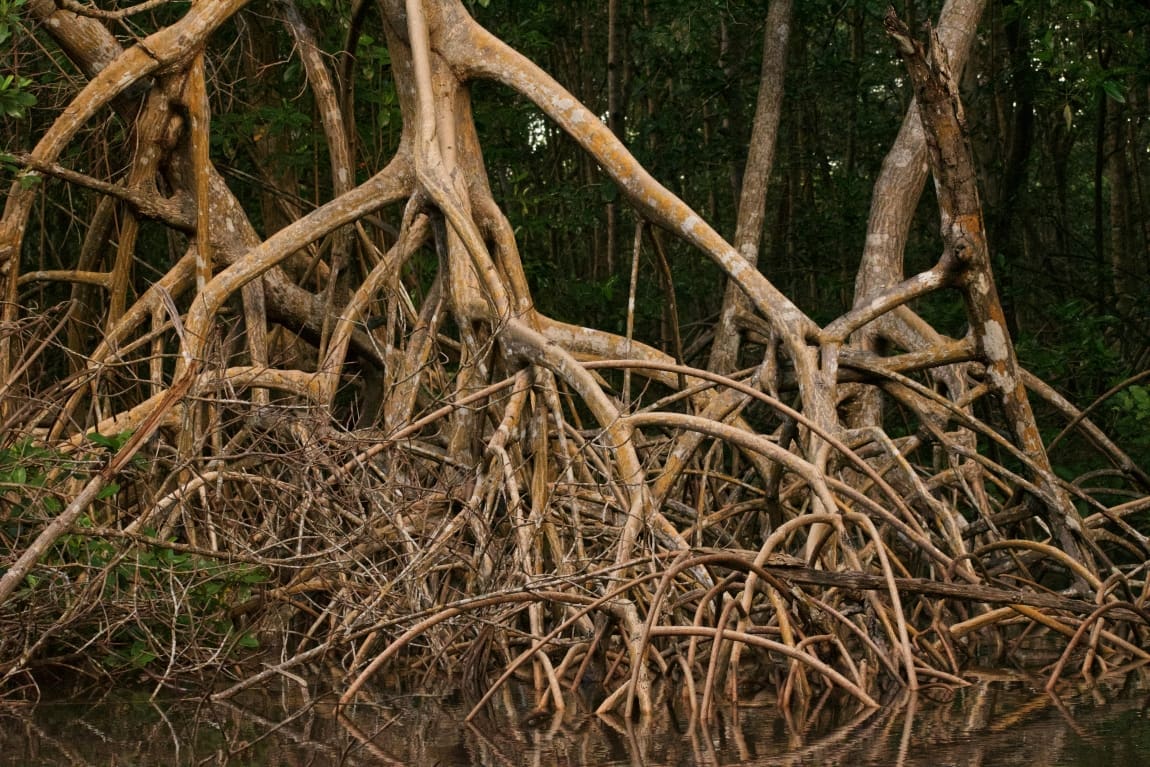Dhaka, Bangladesh (AFP) – Bangladeshi police have charged 26 people for destroying a swath of mangrove forest that protects the low-lying nation from storm surge waters exacerbated by climate change, environmental officers said Thursday.
“They have destroyed parts of a unique ecosystem, which has been declared as an ECA (Ecologically Critical Area),” Jamir Uddin, a deputy director of the environment department, told AFP.
Uddin said it was “one of the largest environmental cases” the agency had tackled.
The men are accused of felling about 560 acres (225 hectares) of the southeastern Sonadia coastal forest, close to Bangladesh’s border with Myanmar, to turn it into commercial shrimp and salt farms.
“They face charges under the country’s environmental laws and could be sentenced to 10 years in jail if convicted,” Sonadia police station chief Sukanta Chakrabarty told AFP.
Bangladeshi newspaper Prothom Alo, the country’s largest Bengali daily, said at least 2.3 million trees were felled to clear an area for at least 45 shrimp and salt farms.
Several of those charged are officials from the ruling Awami League party, Chakrabarty said.
Charges were filed against the men on Tuesday.
Shrimp is one of Bangladesh’s major exports. To raise shrimps, farmers divert sea water into their farms, making the land unfit for other crops.
Bangladesh is at the forefront of the world’s climate crisis, with cyclones and floods becoming more frequent and powerful, according to scientists.
Mangroves are trees that grow mainly in seawater or brackish water along coastlines and tidal rivers.
They protect coastlines from erosion and extreme weather events, improve water quality by filtering pollutants and serve as nurseries for many marine creatures.
They can help fight climate change by sequestering millions of tons of carbon each year in their trees’ leaves, trunks, roots and the soil.
The International Union for Conservation of Nature (IUCN) warned in May that half of the world’s mangrove ecosystems are at risk of collapse due to climate change, deforestation and pollution.
Mangroves are a key feature of the country’s coast, with the Sundarbans, the world’s largest mangrove forest and home to rare Bengal tigers, credited with minimising the damages of cyclones.
A forest official said the Sonadia mangroves were an important site for migratory birds, including the rare spoon-billed sandpiper.
sa/mma/pjm/mca
© Agence France-Presse
Featured image credit: Shaueel Persadee | Unsplash




